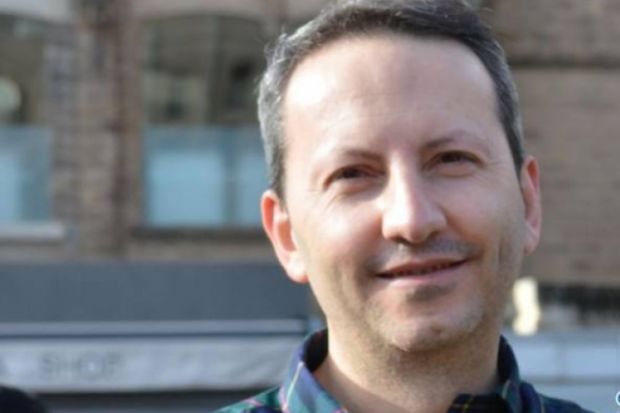A researcher from Stockholm’s Karolinska Institute has been sentenced to death in Iran on spying charges.
Ahmadreza Djalali has also been found guilty of “spreading corruption on earth”, the single most serious offence under Iranian law, said Amnesty International, which has condemned the father-of-two's “grossly unfair trial”.
Dr Djalali, who is also affiliated with University of Eastern Piedmont in Novara, Italy, and Vrije Universiteit Brussel (VUB), in Belgium, was arrested in April 2016 while visiting the University of Tehran and Shiraz University, where he had been invited to attend a workshop on disaster medicine.
The 46-year-old was held without access to a lawyer for seven months, three of which were in solitary confinement. In a voice recording that was published on YouTube on 22 October, Dr Djalali is heard saying that, while in solitary confinement, he was twice forced to make “confessions” in front of a video camera by reading out statements pre-written by his interrogators.
He claims he was put under intense pressure through psychological torture and threats to execute him and arrest his children to “confess” to being a spy for a “hostile government”.
Amnesty is calling on Iranian authorities to quash the death sentence against Iranian-born Swedish resident and specialist in emergency medicine.
Some 230,000 people have already signed a petition demanding his release. The petition has now been reopened following news of Dr Djalali's sentence.
Zeynab Taheri, one of Ahmadreza Djalali’s lawyers, has now told Amnesty International that he was sentenced to death for the charge of “corruption on earth” (ifsad fil-arz), and has been given a €200,000 fine (£178,670).
The court verdict, which was shown to one of the lawyers, states that Dr Djalali worked with the Israeli government, who subsequently helped him obtain his residency permit in Sweden, the charity said on 23 October.
Philip Luther, Amnesty International’s research and advocacy director for the Middle East and North Africa, said the scholar's “grossly unfair trial…once again exposes not only the Iranian authorities’ steadfast commitment to use of the death penalty but their utter contempt for the rule of law”.
“No evidence has ever been presented to show that he is anything other than an academic peacefully pursuing his profession,” he added.
Ahmadreza Djalali’s wife Vida Mehrannia, who lives in Sweden with their two children, has told Amnesty International that his physical and mental health have sharply deteriorated since he was detained.
In a letter published in The Lancet in May, four of his colleagues from Eastern Piedmont’s Research Center in Emergency and Disaster Medicine said his detention was being used for political purposes.
“A spy he is not, but he has become a warning to other bright and talented Iranian students who study abroad that they are first always Iranians and must tote some invisible line, a line that we as global academics do not fully understand or appreciate,” wrote Francesco Della Corte, Frederick M Burkle Jr, Alba Ripoll Gallardo and Luca Ragazzoni.
Register to continue
Why register?
- Registration is free and only takes a moment
- Once registered, you can read 3 articles a month
- Sign up for our newsletter
Subscribe
Or subscribe for unlimited access to:
- Unlimited access to news, views, insights & reviews
- Digital editions
- Digital access to THE’s university and college rankings analysis
Already registered or a current subscriber? Login






